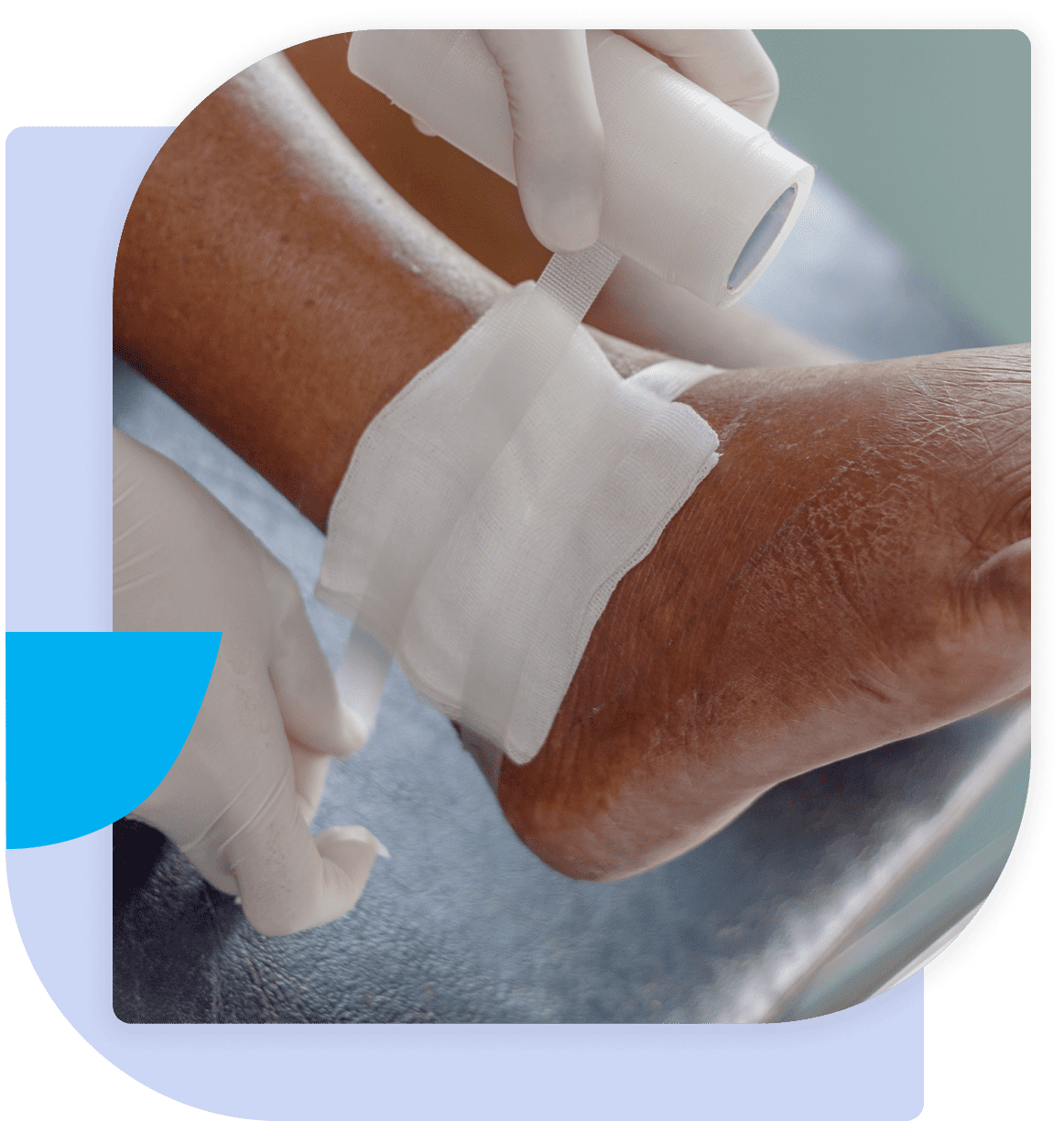For Many Medical Practices and Institutions, Outsourcing Chronic Wound Care is the Best Option.
Here's why:

How Chronic Wound Care Impacts Medical Practices
Chronic wound care presents unique challenges and opportunities for medical practices, affecting patient care, resource allocation, and the integration of specialized treatments.
Growing Demand for Specialized Care
Financial Considerations
Enhancing Patient Outcomes
Advancements in Chronic Wound Care Technology
Chronic Wound Care
Provider Challenges Include

Expensive Cost of Goods

Risk of Claim Denial

No Payment Terms

Time Consuming Prior
Authorization Process

Ever-Changing Insurance Reimbursement Rules

Limited Manufacturer
Relationships
Outsourcing Chronic Wound Care: A Strategic Advantage for Medical Practices
Outsourcing chronic wound care services offers several benefits for healthcare providers, allowing them to enhance efficiency while maintaining high standards of patient care.
Key Benefits:

